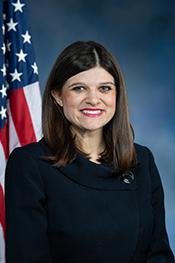0
0
0
Capping Drug Costs for Seniors Act of 2021
12/31/2022, 5:07 AM
Summary of Bill HR 4417
Bill 117 HR 4417, also known as the Capping Drug Costs for Seniors Act of 2021, aims to address the issue of rising prescription drug costs for senior citizens in the United States. The bill proposes to cap out-of-pocket expenses for Medicare beneficiaries at $2,000 per year for prescription drugs covered under Part D of Medicare.
The bill also includes provisions to allow Medicare to negotiate drug prices with pharmaceutical companies, which proponents argue will help lower overall drug costs for seniors. Additionally, the bill seeks to increase transparency in drug pricing by requiring pharmaceutical companies to disclose the costs associated with developing and manufacturing prescription drugs.
Supporters of the bill argue that it will help alleviate the financial burden faced by many seniors who struggle to afford necessary medications. They believe that capping drug costs and allowing Medicare to negotiate prices will make prescription drugs more affordable for seniors on fixed incomes. Opponents of the bill, however, argue that government intervention in drug pricing could stifle innovation in the pharmaceutical industry and lead to reduced access to new and potentially life-saving medications. They also raise concerns about the potential impact on drug companies' ability to recoup research and development costs. Overall, the Capping Drug Costs for Seniors Act of 2021 aims to address the issue of rising prescription drug costs for seniors by capping out-of-pocket expenses, allowing Medicare to negotiate drug prices, and increasing transparency in drug pricing. The bill has sparked debate among lawmakers, industry stakeholders, and advocacy groups, with both supporters and opponents voicing their opinions on the potential impact of the proposed legislation.
The bill also includes provisions to allow Medicare to negotiate drug prices with pharmaceutical companies, which proponents argue will help lower overall drug costs for seniors. Additionally, the bill seeks to increase transparency in drug pricing by requiring pharmaceutical companies to disclose the costs associated with developing and manufacturing prescription drugs.
Supporters of the bill argue that it will help alleviate the financial burden faced by many seniors who struggle to afford necessary medications. They believe that capping drug costs and allowing Medicare to negotiate prices will make prescription drugs more affordable for seniors on fixed incomes. Opponents of the bill, however, argue that government intervention in drug pricing could stifle innovation in the pharmaceutical industry and lead to reduced access to new and potentially life-saving medications. They also raise concerns about the potential impact on drug companies' ability to recoup research and development costs. Overall, the Capping Drug Costs for Seniors Act of 2021 aims to address the issue of rising prescription drug costs for seniors by capping out-of-pocket expenses, allowing Medicare to negotiate drug prices, and increasing transparency in drug pricing. The bill has sparked debate among lawmakers, industry stakeholders, and advocacy groups, with both supporters and opponents voicing their opinions on the potential impact of the proposed legislation.
Congressional Summary of HR 4417
Capping Drug Costs for Seniors Act of 2021
This bill caps annual out-of-pocket spending under the Medicare prescription drug benefit.
Read the Full Bill
Current Status of Bill HR 4417
Bill HR 4417 is currently in the status of Bill Introduced since July 13, 2021. Bill HR 4417 was introduced during Congress 117 and was introduced to the House on July 13, 2021. Bill HR 4417's most recent activity was Referred to the Subcommittee on Health. as of July 14, 2021
Bipartisan Support of Bill HR 4417
Total Number of Sponsors
1Democrat Sponsors
1Republican Sponsors
0Unaffiliated Sponsors
0Total Number of Cosponsors
4Democrat Cosponsors
4Republican Cosponsors
0Unaffiliated Cosponsors
0Policy Area and Potential Impact of Bill HR 4417
Primary Policy Focus
HealthAlternate Title(s) of Bill HR 4417
To amend title XVIII of the Social Security Act to provide for a cap on beneficiary liability under part D of the Medicare program, and for other purposes.
Capping Drug Costs for Seniors Act of 2021
Capping Drug Costs for Seniors Act of 2021
Comments
Sponsors and Cosponsors of HR 4417
Latest Bills
National Defense Authorization Act for Fiscal Year 2026
Bill S 1071December 13, 2025
Enduring Justice for Victims of Trafficking Act
Bill S 2584December 13, 2025
Technical Corrections to the Northwestern New Mexico Rural Water Projects Act, Taos Pueblo Indian Water Rights Settlement Act, and Aamodt Litigation Settlement Act
Bill S 640December 13, 2025
Incentivizing New Ventures and Economic Strength Through Capital Formation Act of 2025
Bill HR 3383December 13, 2025
BOWOW Act of 2025
Bill HR 4638December 13, 2025
Northern Mariana Islands Small Business Access Act
Bill HR 3496December 13, 2025
Wildfire Risk Evaluation Act
Bill HR 3924December 13, 2025
Energy Choice Act
Bill HR 3699December 13, 2025
ESTUARIES Act
Bill HR 3962December 13, 2025
Improving Interagency Coordination for Pipeline Reviews Act
Bill HR 3668December 13, 2025
Lower Costs, More Cures Act of 2021
Bill S 2164December 31, 2022
Fair Care Act of 2022
Bill HR 8588March 8, 2023
Inflation Reduction Act of 2022
Bill HR 5376September 5, 2023
Reduced Costs and Continued Cures Act
Bill HR 5260March 8, 2023
Reduced Costs and Continued Cures Act of 2021
Bill HR 5237December 30, 2022
Elijah E. Cummings Lower Drug Costs Now Act
Bill HR 3May 11, 2023


